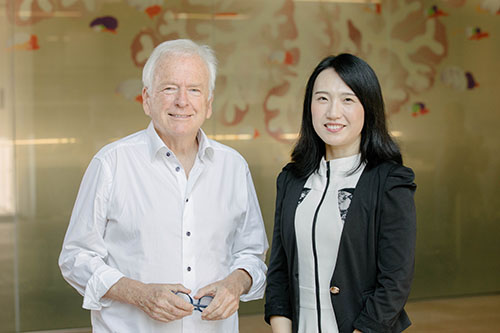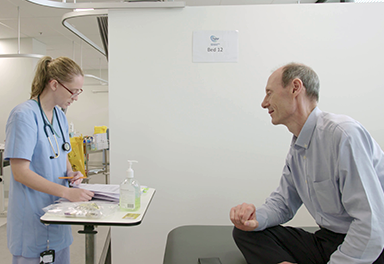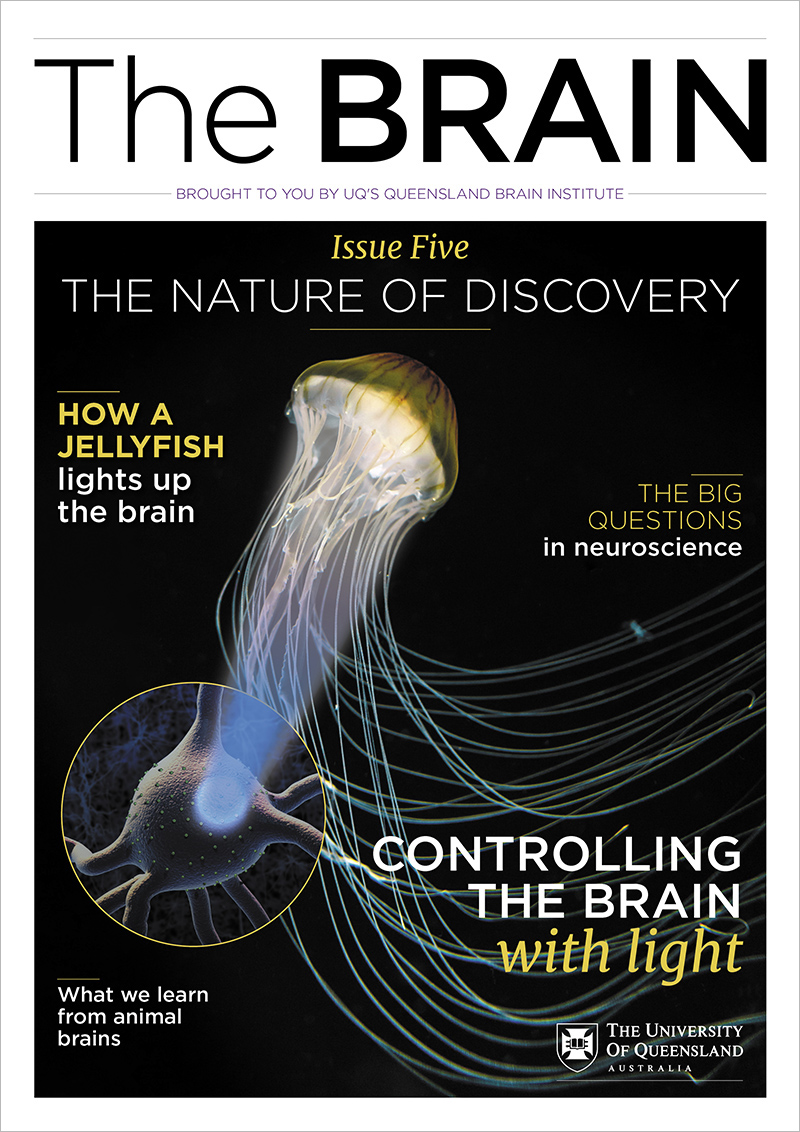Decades of MND research now in clinical trials
 Emeritus Professor Perry Bartlett, the inaugural QBI Director, and his colleagues Emeritus Professor Andrew Boyd and Dr Jing Zhao are now translating their research discoveries in motor neurone disease (MND) to human clinical trials. They are using a novel EpHA4 blocker to prevent the progression of MND.
Emeritus Professor Perry Bartlett, the inaugural QBI Director, and his colleagues Emeritus Professor Andrew Boyd and Dr Jing Zhao are now translating their research discoveries in motor neurone disease (MND) to human clinical trials. They are using a novel EpHA4 blocker to prevent the progression of MND.
The need
MND is a rapidly progressing neurological disorder in which nerve cells (neurons) controlling our muscles progressively die. MND robs people of their ability to move, eat, swallow, speak and ultimately, breathe – on average, within 27 months of diagnosis.
In recent years, we have seen an acceleration in MND research globally, transforming our understanding of the disease. But there is currently no effective treatment and no cure.
 The goal
The goal
Emeritus professors Bartlett and Boyd established in 1998 that neuronal receptor EphA4 regulates motor neurone development and function, with Dr Zhao showing that blocking its function slowed MND progression in animal models by preventing neuronal death. Now, the team has manufactured and patented a novel drug for humans that can block EphA4 action.
Using this drug, the team commenced a Phase 1b human clinical trial in 2021 to determine its safety and to look for potential benefits in MND patients over a six-month period. Ultimately, their goal is to prevent or slow the progression of the disease by protecting motor neurones from dying, leading to a longer and better quality of life for people living with the disease.
Our health impact
MND is uncommon but not rare. Every day, two Australians are diagnosed with MND and there are more than 2,000 people in Australia currently living with this degenerative condition.
Nearly 40 per cent of the 2,100 Australians living with this degenerative disease were first diagnosed when under the age of 65, with about 60 per cent male and 40 per cent female.
A Deloitte Access Economics report, commissioned by MND Australia, estimated the total cost of MND in Australia in 2015 as $2.37 billion, with the total per person cost of MND estimated to be $1.13 million.
Research initiatives that focus on stopping the progression of MND, like the blocking of gene EphA4 with a new drug, offer the potential to reduce MND’s enormous individual and national burden.

